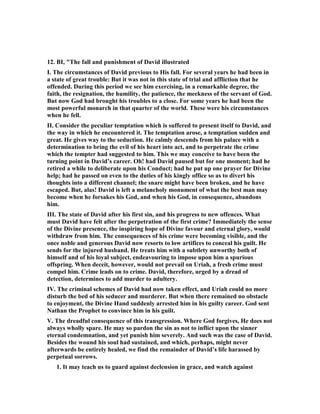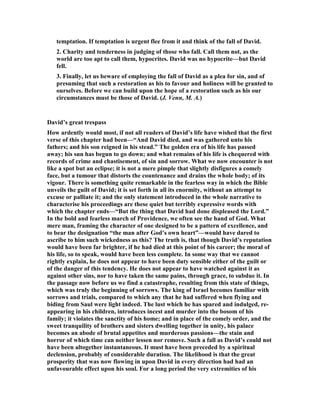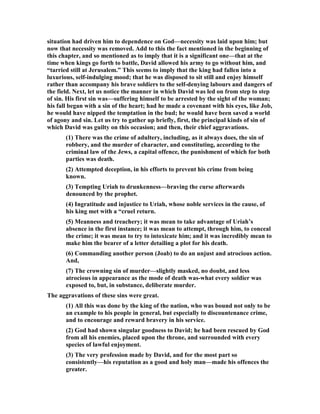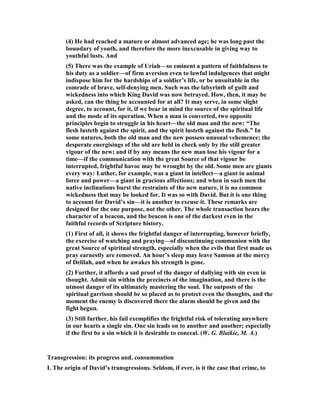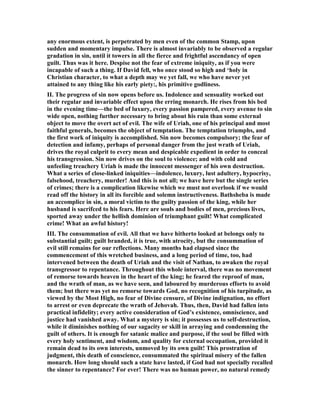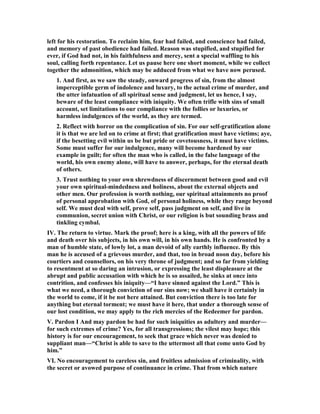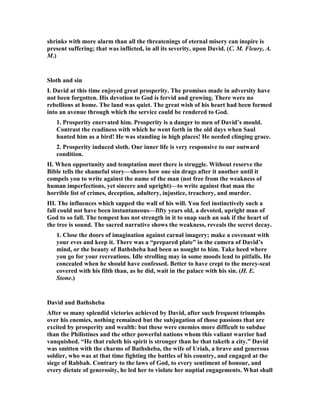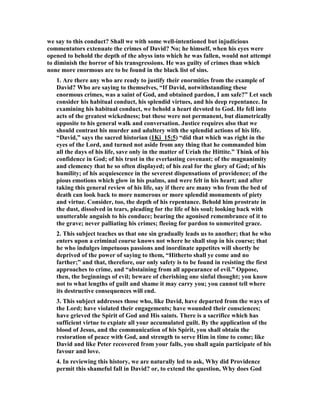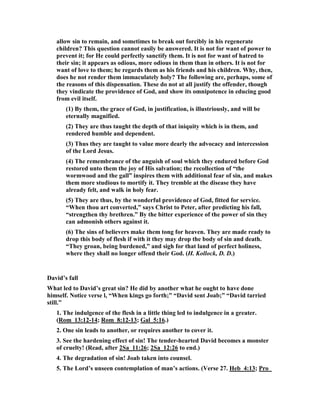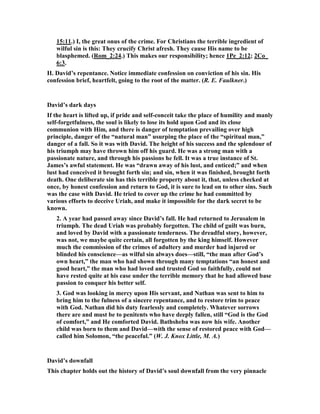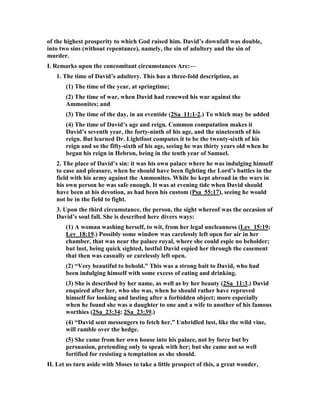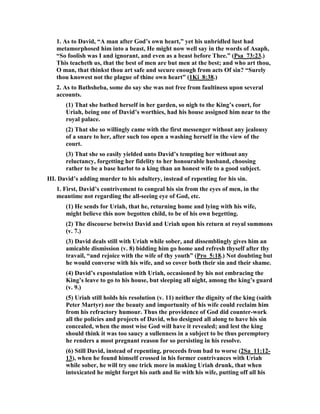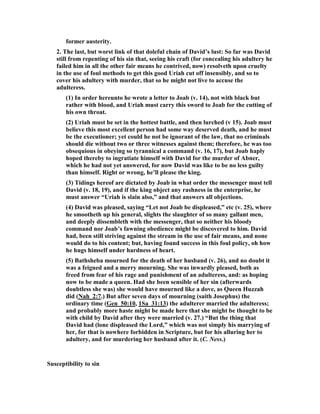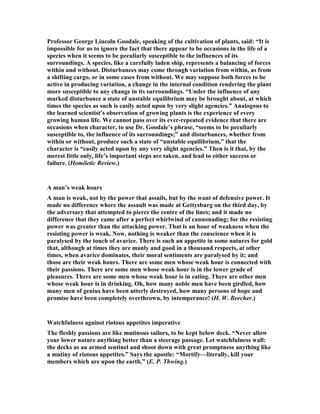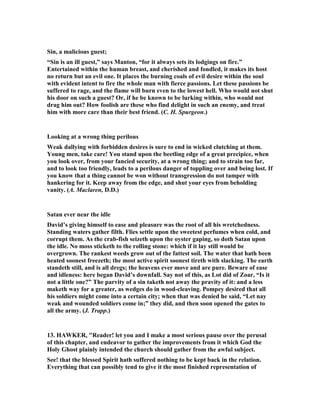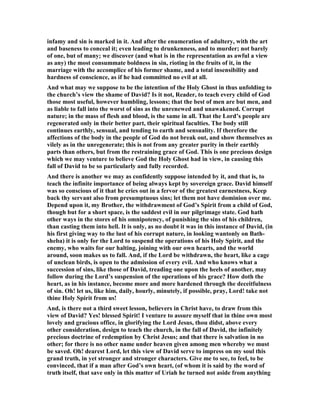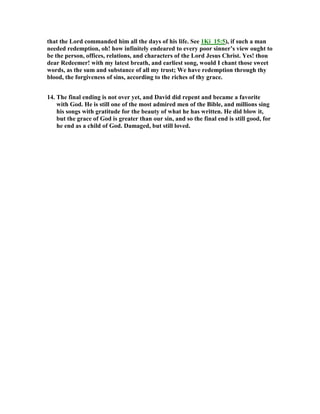This document provides commentary on key passages from 2 Samuel 11, which describes King David's adulterous affair with Bathsheba and his subsequent attempts to cover it up. The commentary cites multiple authors and their analyses of David's sins and the events. It describes how David stayed in Jerusalem instead of going to war, saw Bathsheba bathing from the roof of his palace, and committed adultery with her, which marked a turning point in his formerly righteous life. The commentary explores the moral lessons from David's fall from grace.
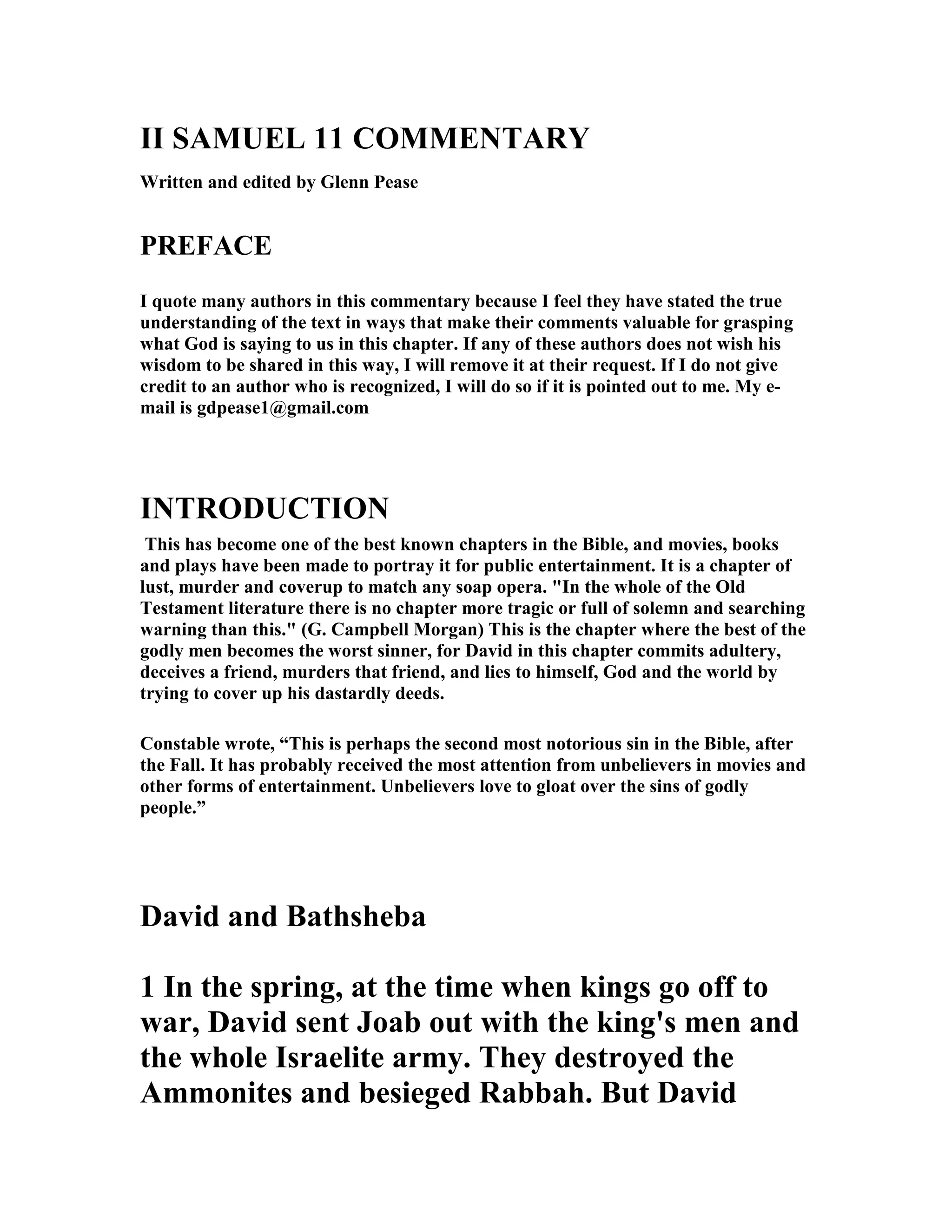
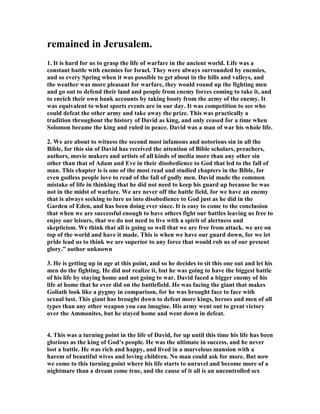
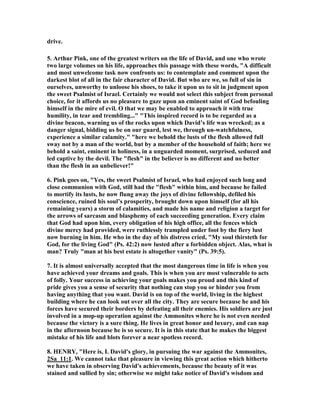
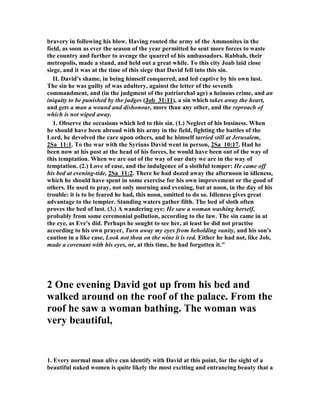
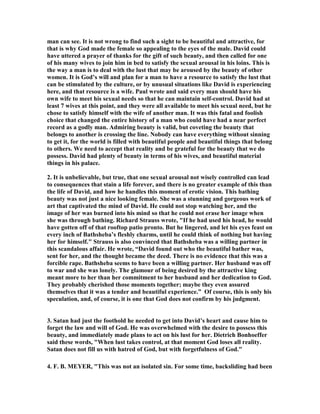
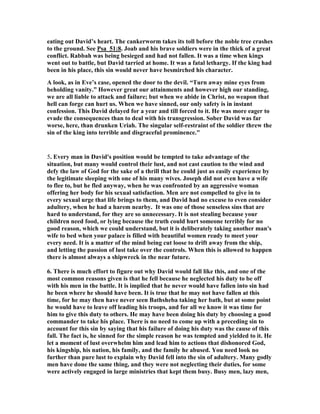
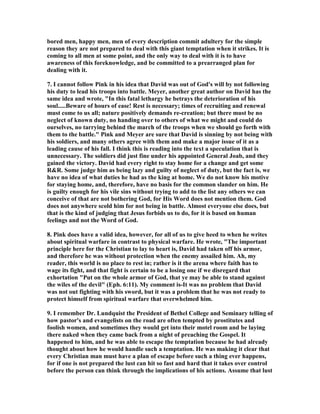
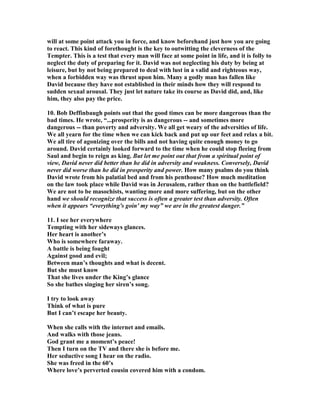
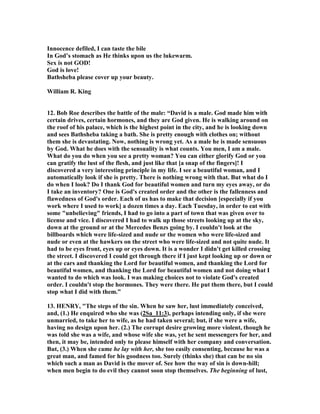
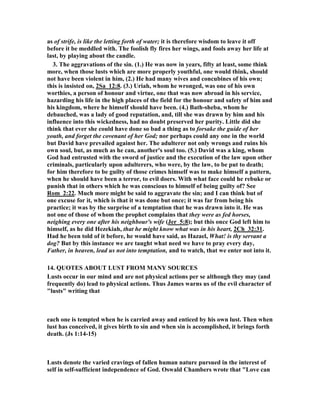
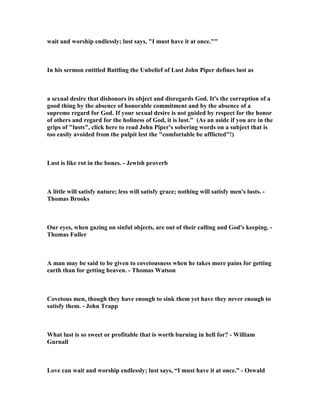
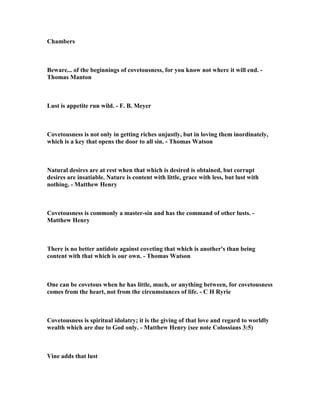
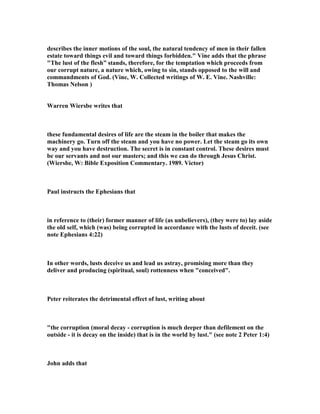
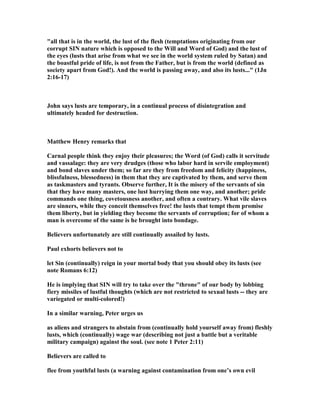
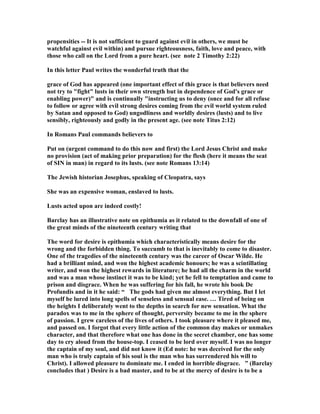
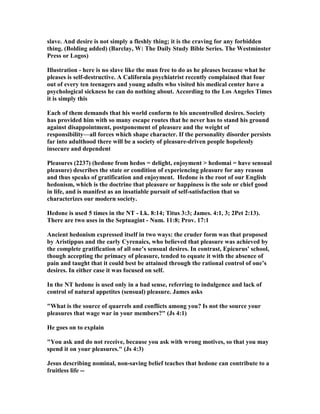
![ow, nothing is wrong yet. As a male he is made sensuous
by God. What he does with the sensuality is what counts. You men, I am a male.
What do you do when you see a pretty woman? You can either glorify God or you
can gratify the lust of the flesh, and just like that [a snap of the fingers]! I
discovered a very interesting principle in my life. I see a beautiful woman, and I
automatically look if she is pretty. There is nothing wrong with that. But what do I
do when I look? Do I thank God for beautiful women and turn my eyes away, or do
I take an inventory? One is God's created order and the other is the fallenness and
flawedness of God's order. Each of us has to make that decision [especially if you
work where I used to work] a dozen times a day. Each Tuesday, in order to eat with
some "unbelieving" friends, I had to go into a part of town that was given over to
license and vice. I discovered I had to walk up those streets looking up at the sky,
down at the ground or at the Mercedes Benzs going by. I couldn't look at the
billboards which were life-sized and nude or the women who were life-sized and
nude or even at the hawkers on the street who were life-sized and not quite nude. It
had to be eyes front, eyes up or eyes down. It is a wonder I didn't get killed crossing
the street. I discovered I could get through there if I just kept looking up or down or
at the cars and thanking the Lord for beautiful women, and thanking the Lord for
beautiful women, and thanking the Lord for beautiful women and not doing what I
wanted to do which was look. I was making choices not to violate God's created
order. I couldn't stop the hormones. They were there. He put them there, but I could
stop what I did with them.”
13. HE](https://image.slidesharecdn.com/231291004-ii-samuel-11-commentary-141007124121-conversion-gate01/85/231291004-ii-samuel-11-commentary-17-320.jpg)
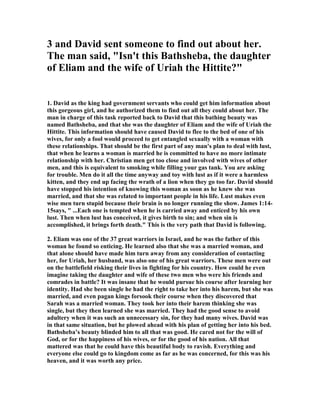
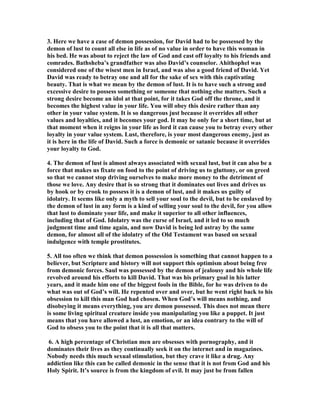
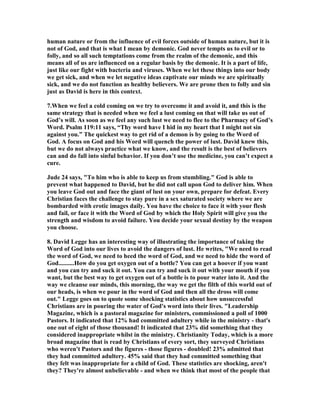
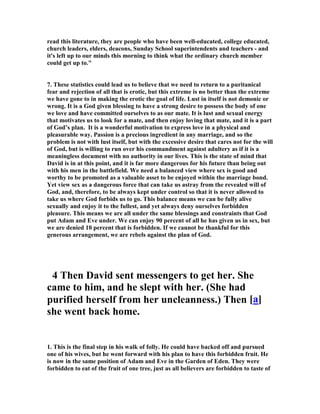
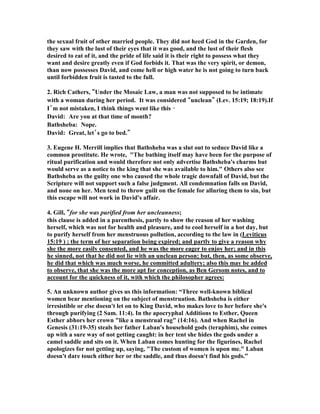
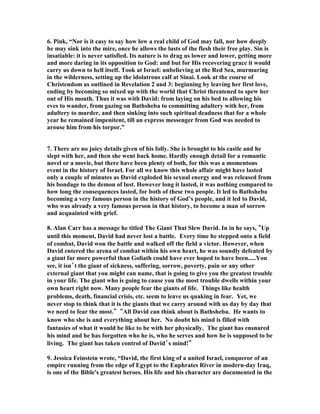
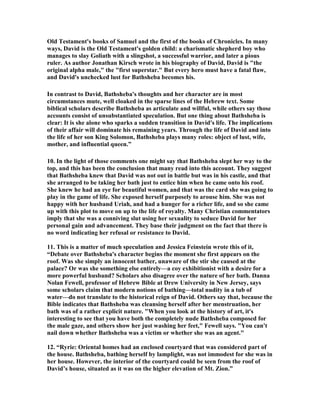
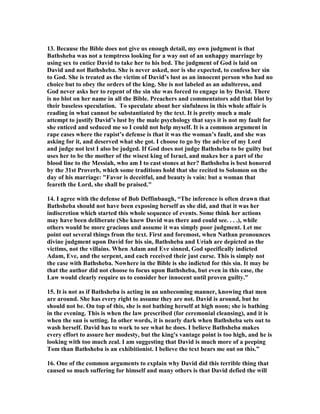
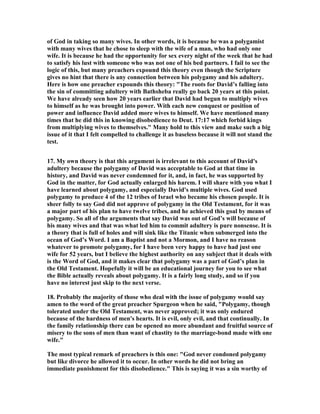
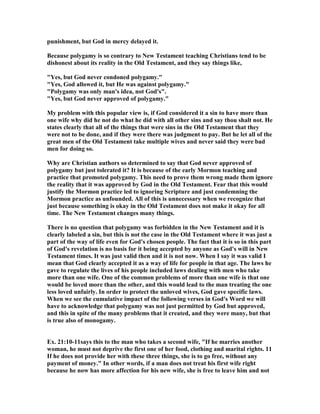
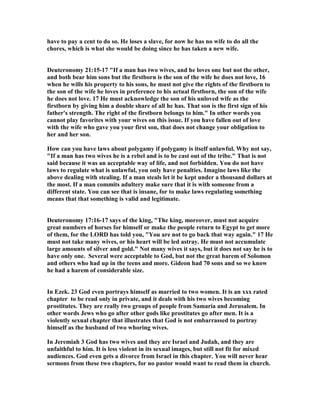
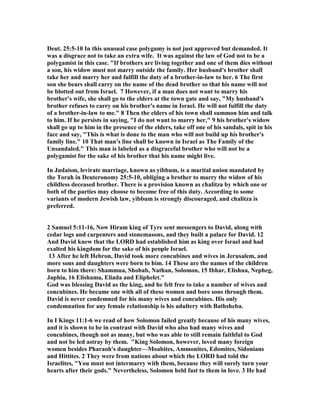
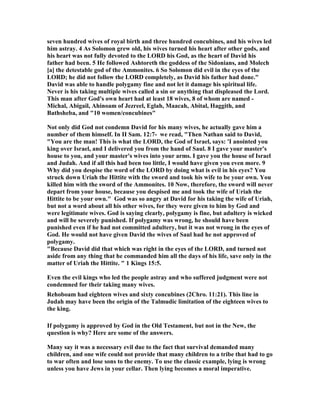
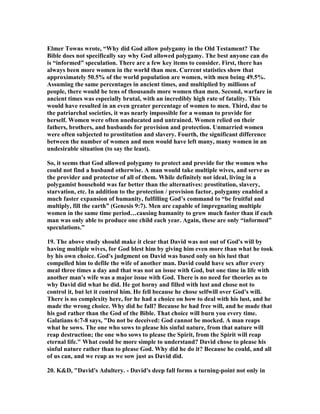
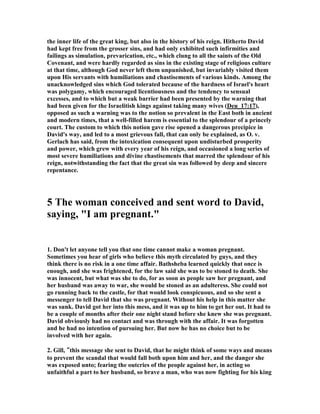
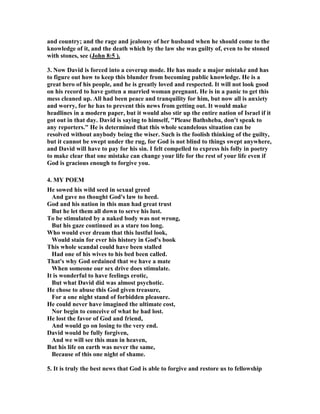
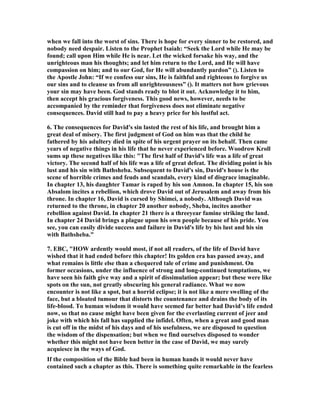
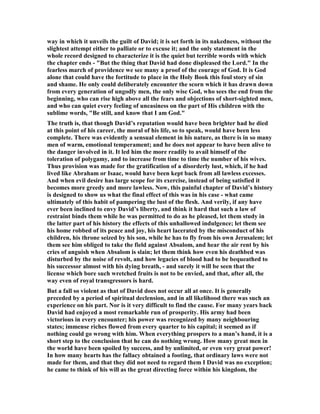
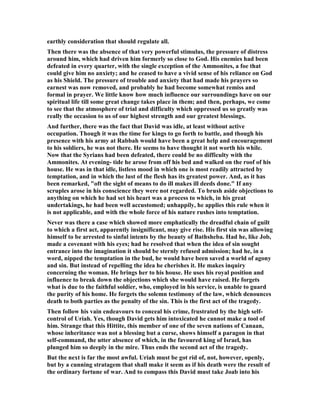
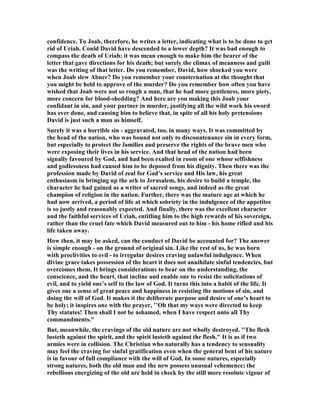
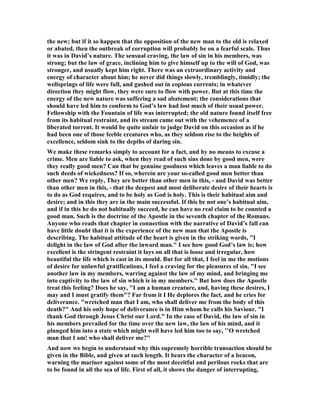
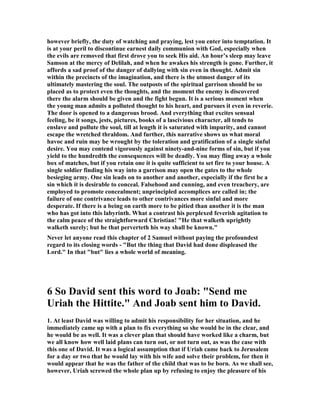
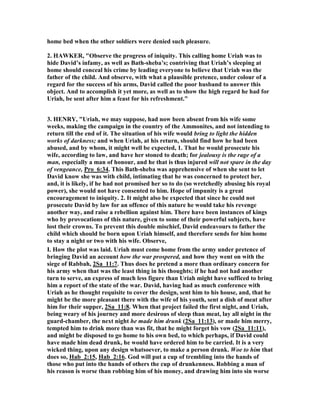
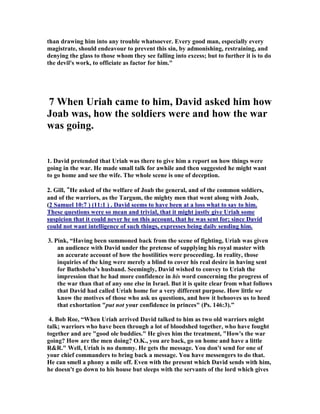
![read this literature, they are people who have been well-educated, college educated,
church leaders, elders, deacons, Sunday School superintendents and teachers - and
it's left up to our minds this morning to think what the ordinary church member
could get up to."
7. These statistics could lead us to believe that we need to return to a puritanical
fear and rejection of all that is erotic, but this extreme is no better than the extreme
we have gone to in making the erotic the goal of life. Lust in itself is not demonic or
wrong. It is a God given blessing to have a strong desire to possess the body of one
we love and have committed ourselves to as our mate. It is lust and sexual energy
that motivates us to look for a mate, and then enjoy loving that mate, and it is a part
of God’s plan. It is a wonderful motivation to express love in a physical and
pleasurable way. Passion is a precious ingredient in any marriage, and so the
problem is not with lust itself, but with the excessive desire that cares not for the will
of God, but is willing to run over his commandment against adultery as if it is a
meaningless document with no authority in our lives. This is the state of mind that
David is in at this point, and it is far more dangerous for his future than being out
with his men in the battlefield. We need a balanced view where sex is good and
worthy to be promoted as a valuable asset to be enjoyed within the marriage bond.
Yet view sex as a dangerous force that can take us astray from the revealed will of
God, and, therefore, to be always kept under control so that it is never allowed to
take us where God forbids us to go. This balance means we can be fully alive
sexually and enjoy it to the fullest, and yet always deny ourselves forbidden
pleasure. This means we are all under the same blessings and constraints that God
put Adam and Eve under. We can enjoy 90 percent of all he has given us in sex, but
we are denied 10 percent that is forbidden. If we cannot be thankful for this
generous arrangement, we are rebels against the plan of God.
4 Then David sent messengers to get her. She
came to him, and he slept with her. (She had
purified herself from her uncleanness.) Then [a]
she went back home.
1. This is the final step in his walk of folly. He could have backed off and pursued
one of his wives, but he went forward with his plan to have this forbidden fruit. He
is now in the same position of Adam and Eve in the Garden of Eden. They were
forbidden to eat of the fruit of one tree, just as all believers are forbidden to taste of](https://image.slidesharecdn.com/231291004-ii-samuel-11-commentary-141007124121-conversion-gate01/85/231291004-ii-samuel-11-commentary-42-320.jpg)
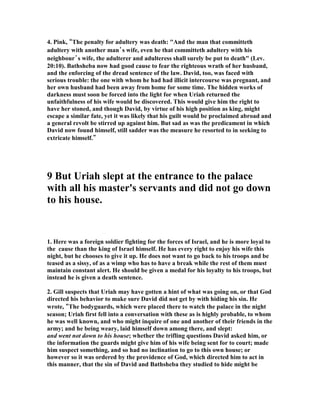
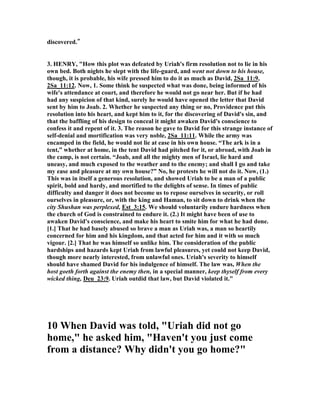
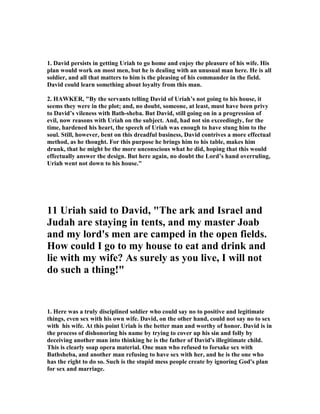
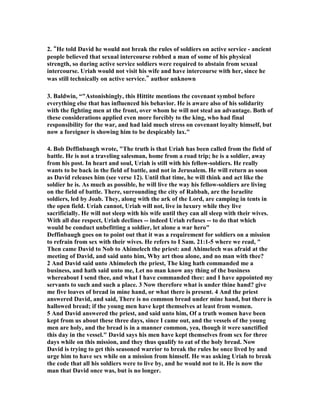
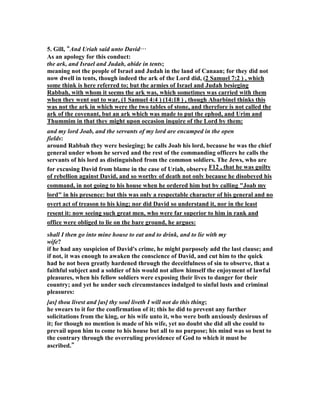
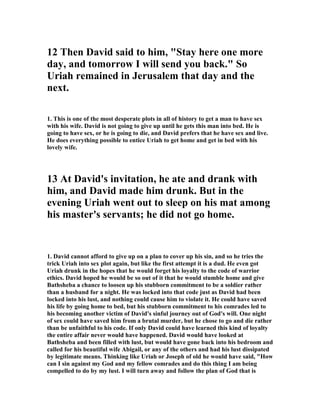
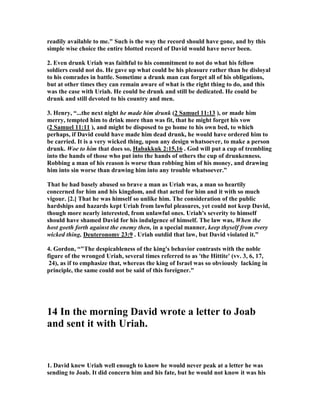
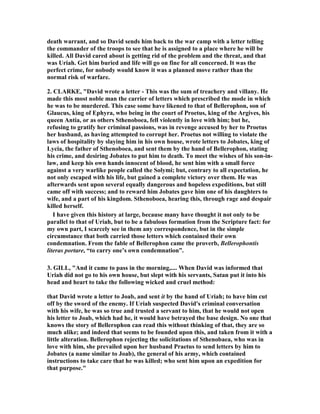
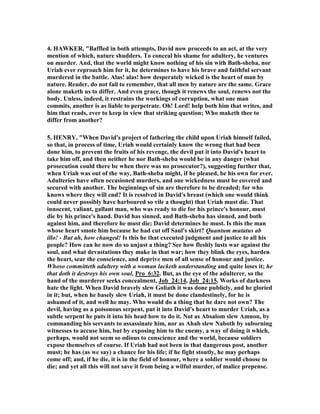
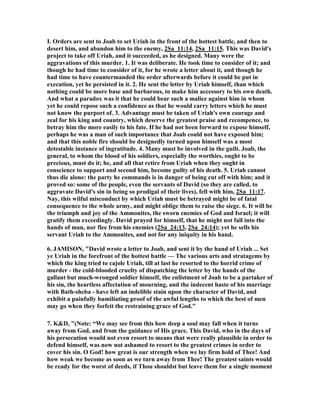
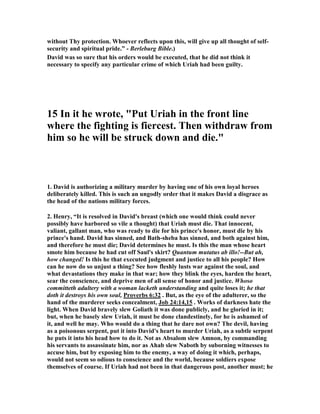
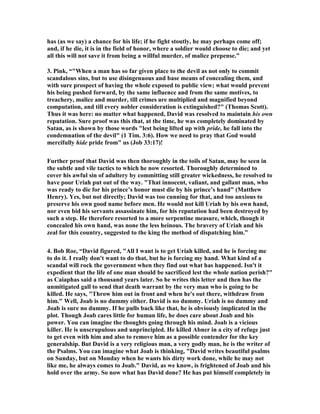
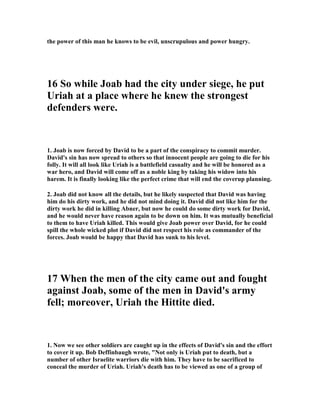
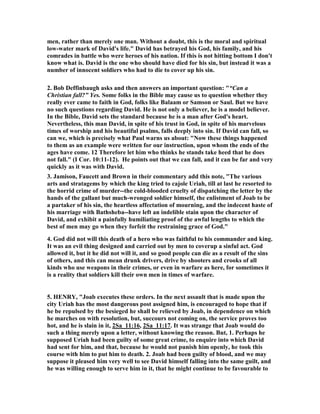

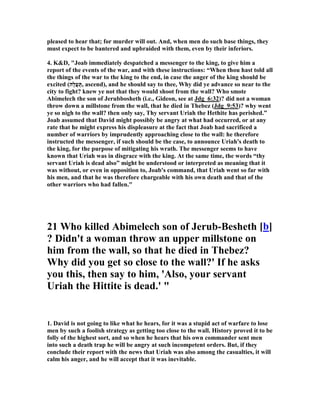
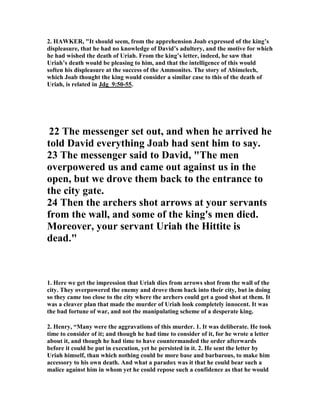
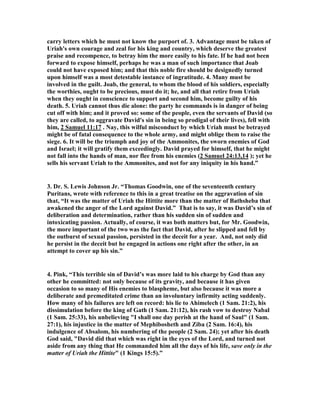
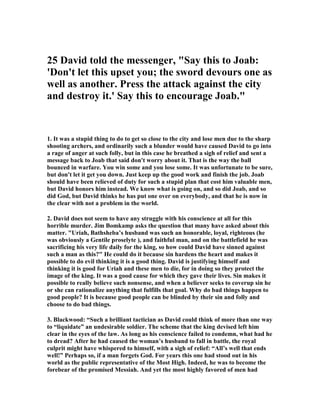
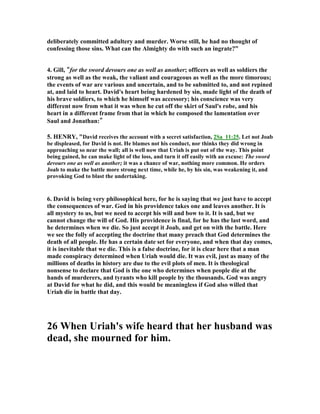
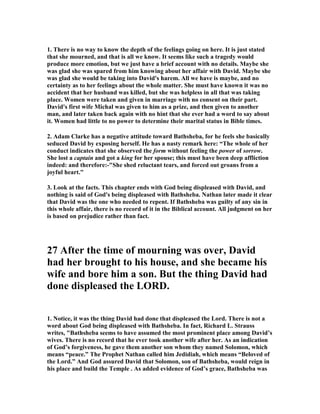
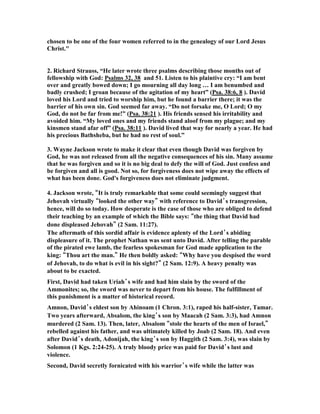
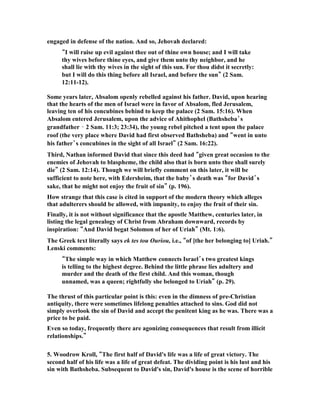
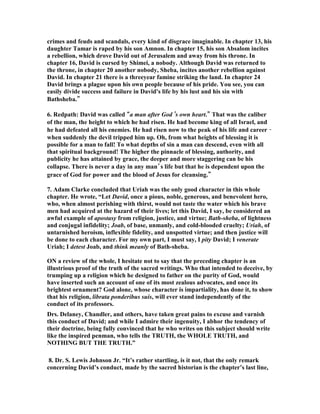
![seven hundred wives of royal birth and three hundred concubines, and his wives led
him astray. 4 As Solomon grew old, his wives turned his heart after other gods, and
his heart was not fully devoted to the LORD his God, as the heart of David his
father had been. 5 He followed Ashtoreth the goddess of the Sidonians, and Molech
[a] the detestable god of the Ammonites. 6 So Solomon did evil in the eyes of the
LORD; he did not follow the LORD completely, as David his father had done."
David was able to handle polygamy fine and not let it damage his spiritual life.](https://image.slidesharecdn.com/231291004-ii-samuel-11-commentary-141007124121-conversion-gate01/85/231291004-ii-samuel-11-commentary-67-320.jpg)
